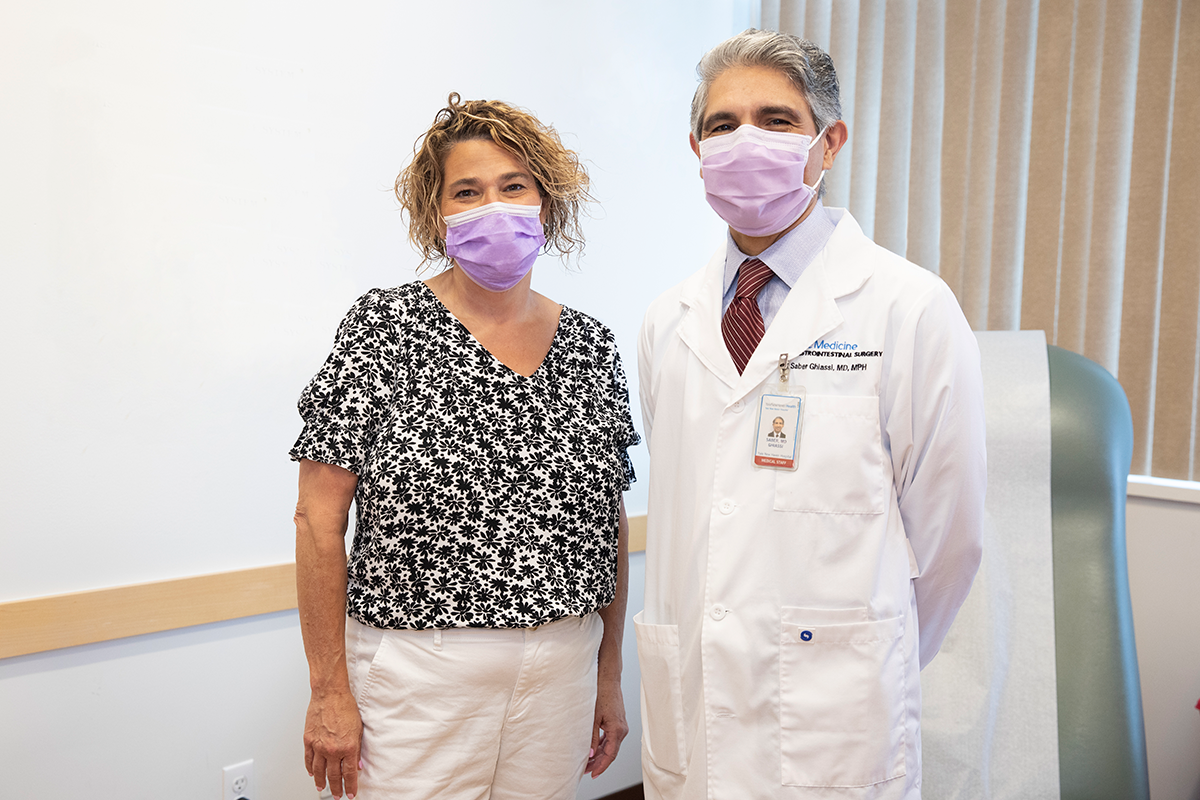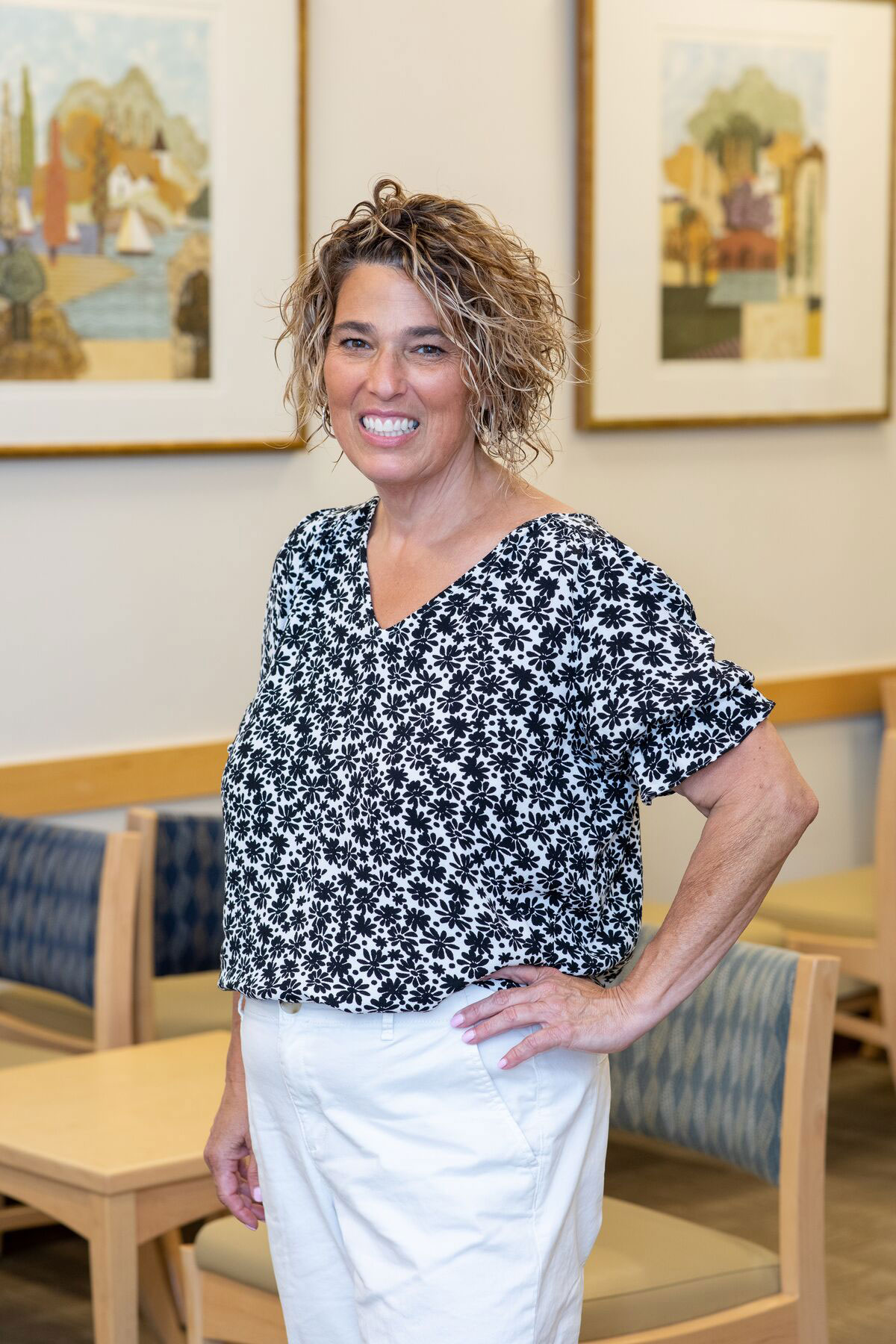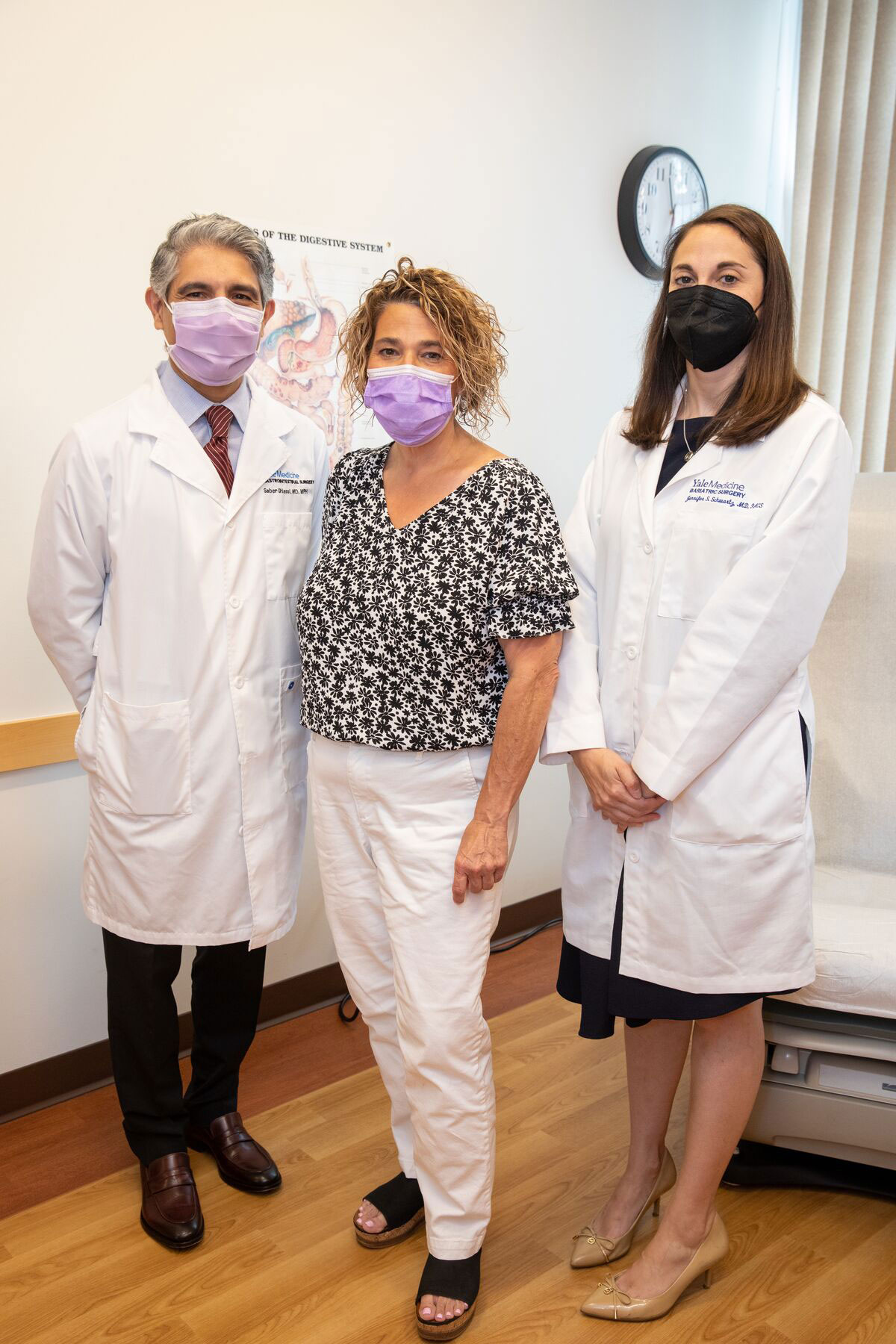
Popular Locations
- Outpatient Surgery - Bridgeport Hospital
- Park Avenue Medical Center
- Primary Care Center - Bridgeport Hospital

Published August 03, 2022

After years of yo-yo dieting, Amy Paundlay had had enough. She looked into bariatric surgery – or weight-loss surgery – as a way to help her shed nearly 100 pounds and adopt a healthier lifestyle. That journey began with the help of the comprehensive Bariatric Surgery program at Bridgeport Hospital.
“Since I was a teenager, weight was always an issue for me,” Paundlay said. “As I got older, I realized that there are some serious health consequences if you don’t take care of yourself.”

The Stratford mother-of-three had considered bariatric surgery a few years ago but was denied coverage by her insurance provider. Then COVID-19 hit and by the spring of 2021, her weight had crept up to 238 pounds. She met with Saber Ghiassi, MD, director of bariatric surgery at Bridgeport Hospital and assistant professor of surgery at Yale School of Medicine, in his Fairfield office to get the process started.
At that time, she made a promise to Dr. Ghiassi – and to herself: “I told him, ‘I’m going to be your poster child for bariatric surgery. I’m going do everything you ask me to do before, during and after.’”
Gastric bypass and sleeve gastrectomy (or gastric sleeve) are two types of bariatric surgery, which change the way your body digests food and helps you lose weight. Most bariatric procedures are performed laparoscopically, meaning smaller incisions and a quicker recovery.
“Gastric sleeve is the most popular operation, in which a major portion of the stomach is removed, making the stomach the size of a banana,” said Bridgeport Hospital and Yale Medicine surgeon Jennifer Schwartz, MD. “Gastric bypass has been around since the 1960s, and it is also popular and involves making the stomach into the size of an egg and rerouting part of the small intestines. Not only can you not eat as much, but you also do not absorb quite as much.
“Gastric bypass is great for those with insulin-dependent diabetes, as the hormonal changes that occur after surgery cause an immediate decrease in blood sugars and insulin requirements,” Dr. Schwartz explained. “It is also a great operation for reflux disease.” Reflux is a digestive disorder that occurs when stomach fluids back up and irritate the lining of the esophagus.

“We have known for years about the relationship between obesity and many chronic health problems, such as diabetes and heart disease,” Dr. Ghiassi said. “Data is now showing that obesity is related to some of the most common types of cancer as well. Numerous studies show that individuals who undergo weight-loss surgery can have significant improvement in many of these chronic illnesses.
“Our program is comprehensive and offers both surgical and medical weight management. It includes dietitians, exercise physiologists, mental health providers, advanced practice providers and nurses,” Dr. Ghiassi said. “Together, we support the physical health and psychological needs of our patients as well as educate them about healthy behavior and wholesome diets, both before and after surgery.”
An educational Bariatric Weight-Loss Surgery webinar offered by Bridgeport Hospital is a first step for people who want to learn more.
“On average, individuals who have these operations can expect to lose anywhere from 50 to 80 percent of their extra weight,” Dr. Ghiassi noted. “Usually, patients lose the majority of their weight in the first year after surgery, and 75 to 80 percent of patients are successful in maintaining long-term weight loss.”
“I like to tell patients that bariatric surgery is a tool, not a cure,” Dr. Schwartz said. “This is a life-long commitment, and I think it is really important that a patient be motivated to make a real lifestyle change. One of the great parts of this program is that we offer follow-up for life, so people can stay on track.”
For Paundlay, it was the perfect choice. She did her research, developed a plan to fit her lifestyle that incorporated portion control and exercise, and underwent gastric bypass surgery last September. She has since lost 94 pounds and regained her life.
“You don’t know how great life can be until you have that activity level you haven’t had,” she said. “Your mindset is completely different, and part of it is the food choices you make. You are now eating to live rather than living to eat.”
Read more about Bariatric Surgery at Bridgeport Hospital, or sign up for a webinar for more information.